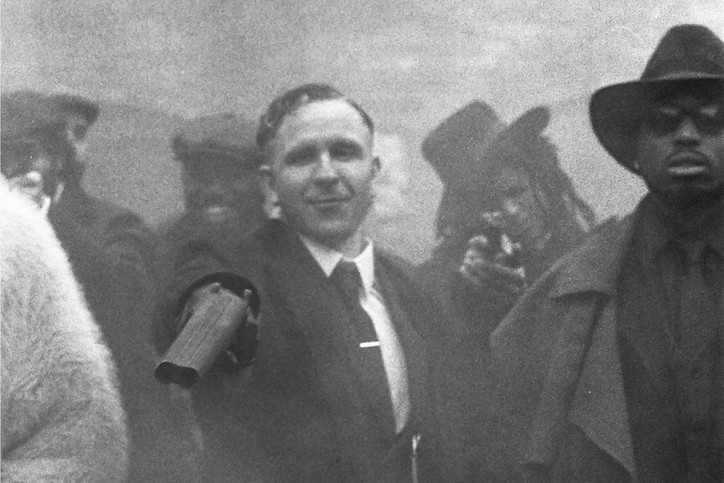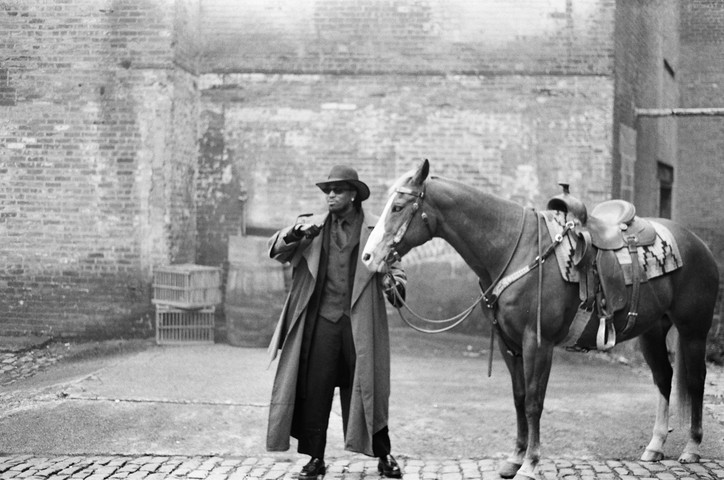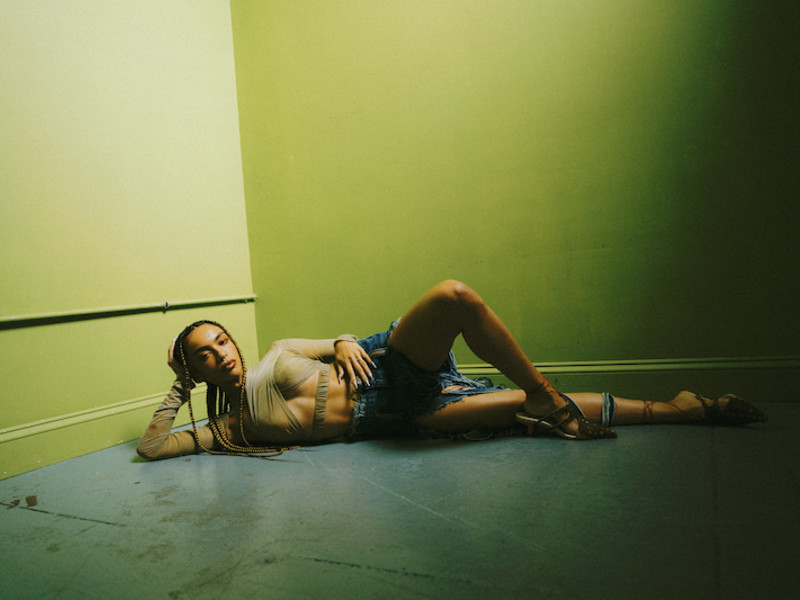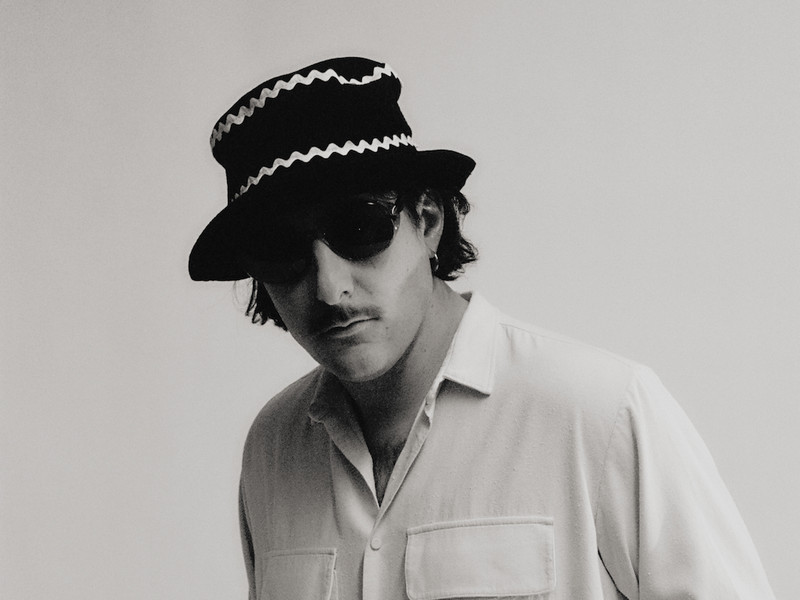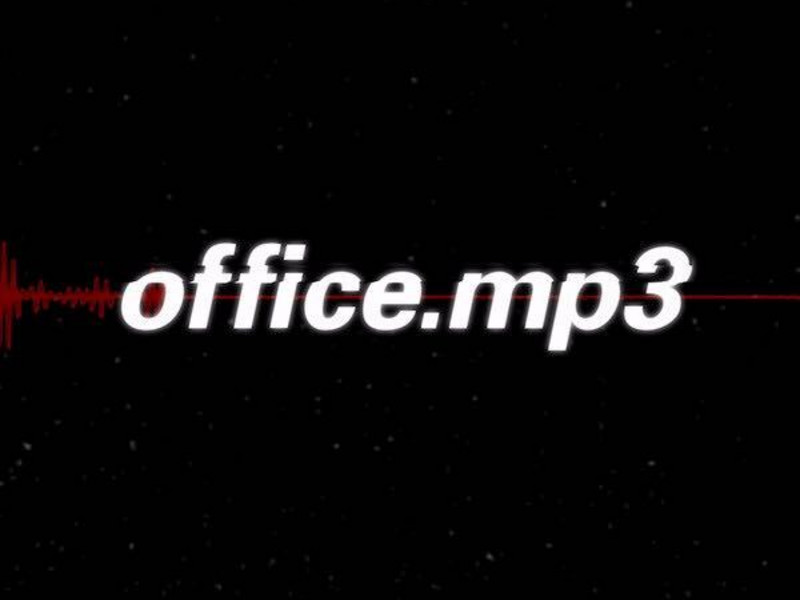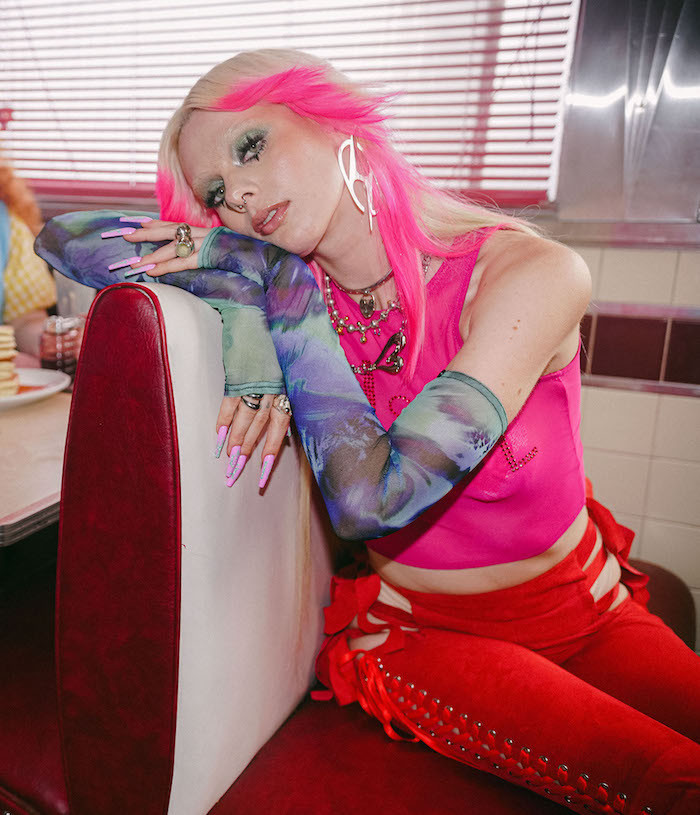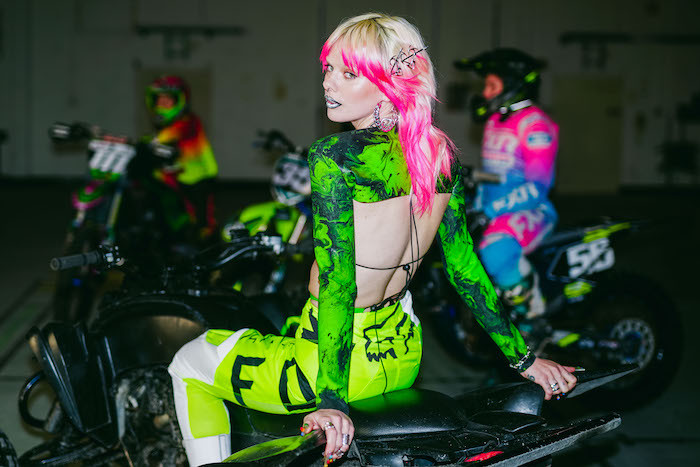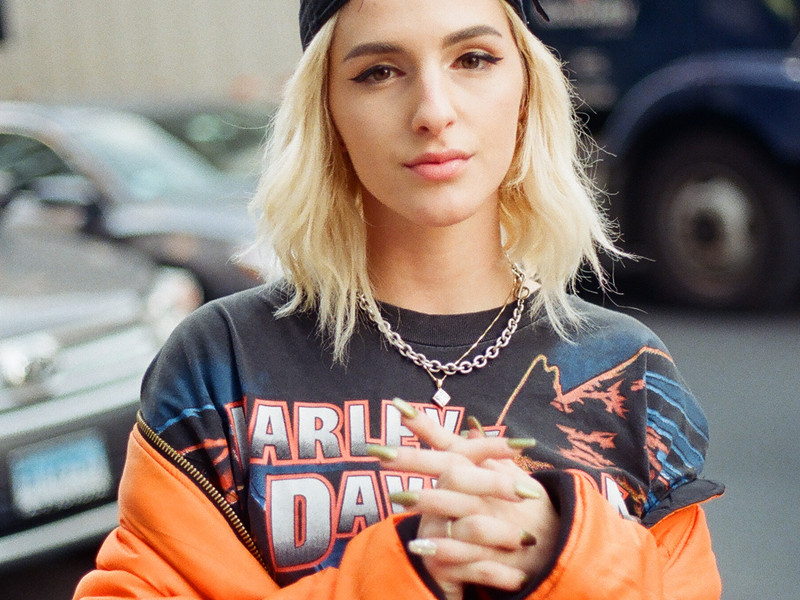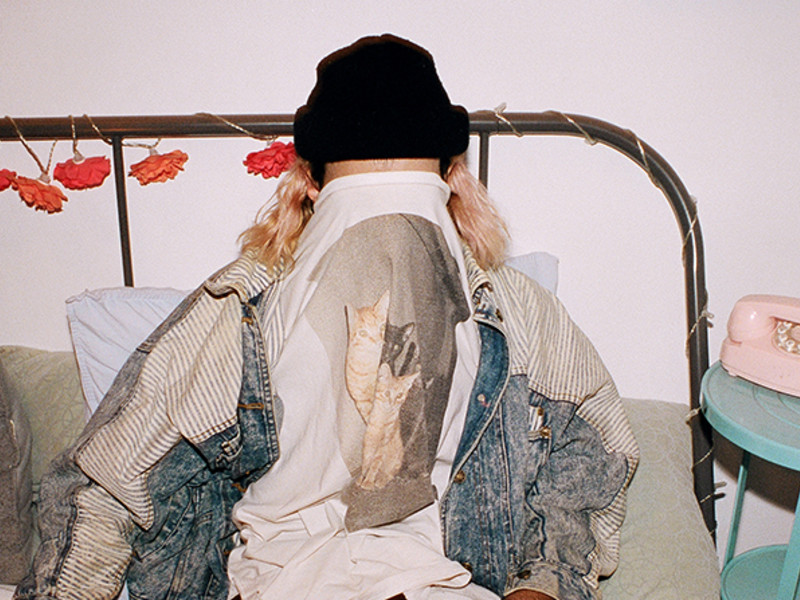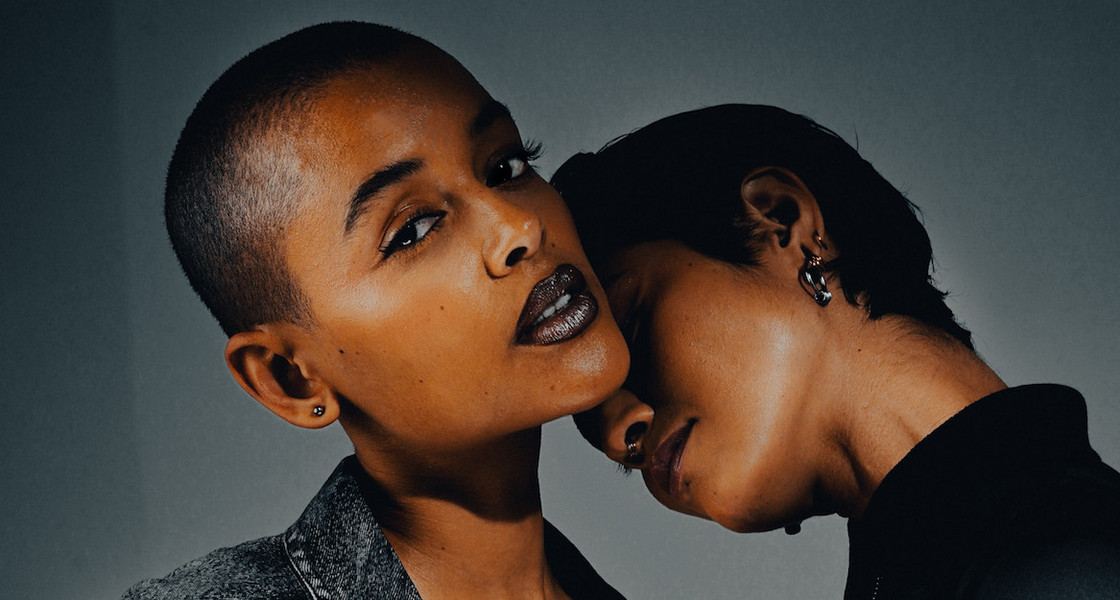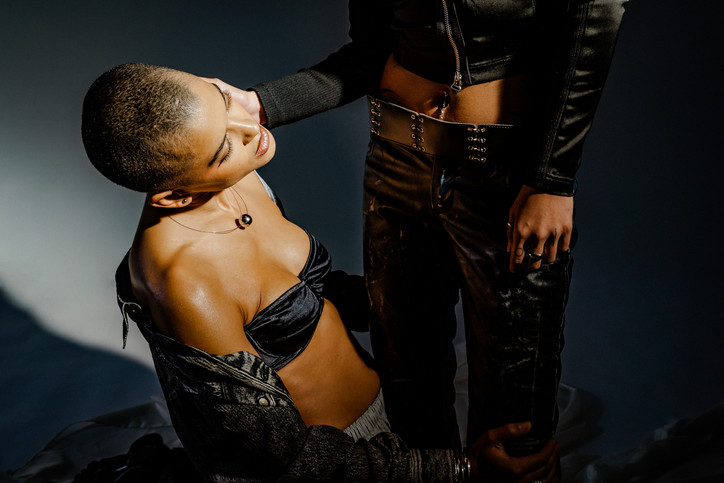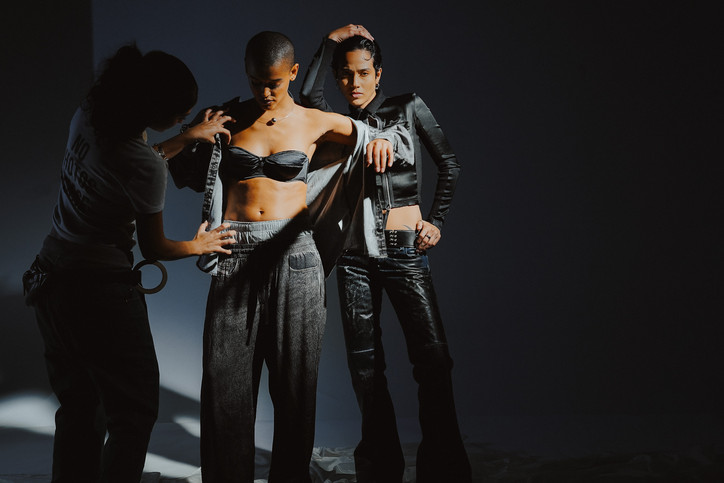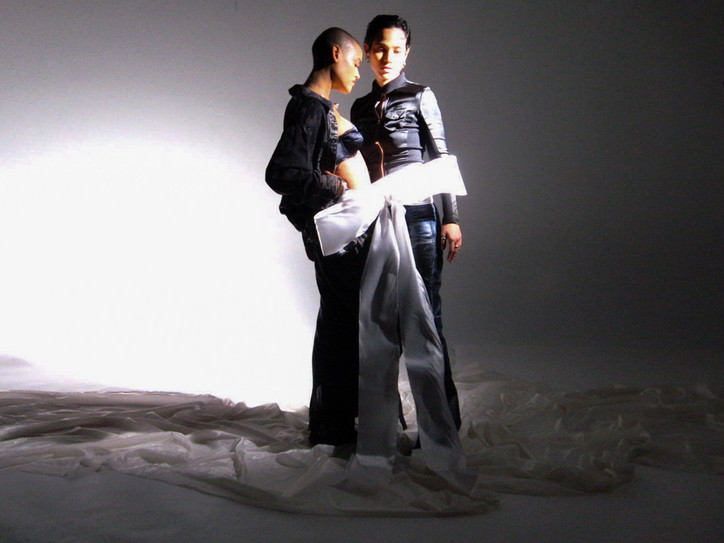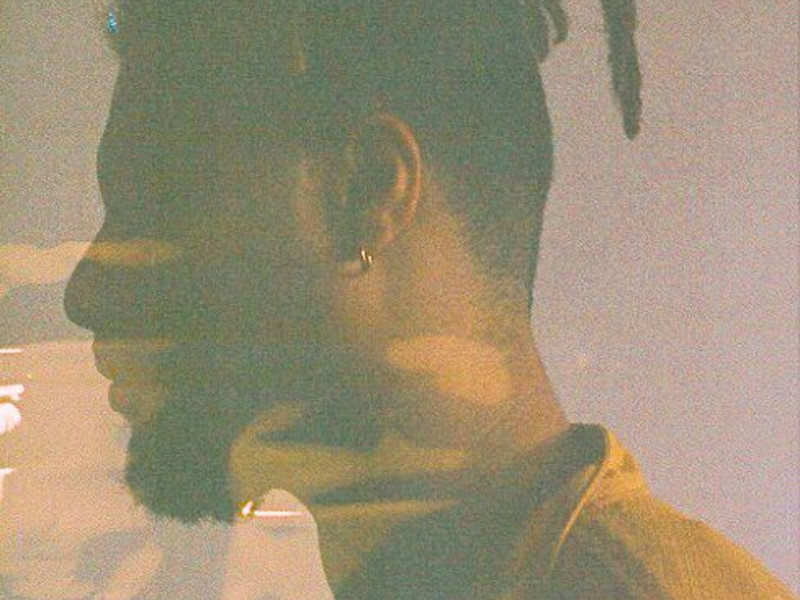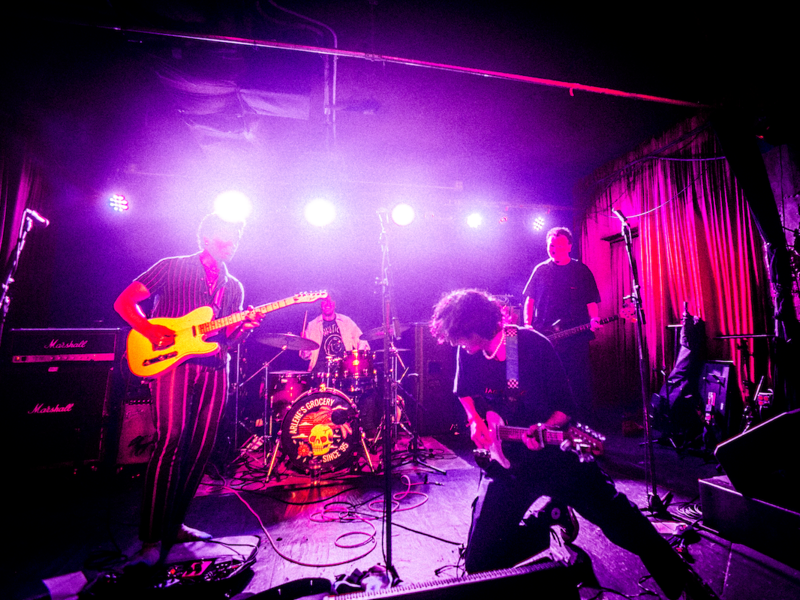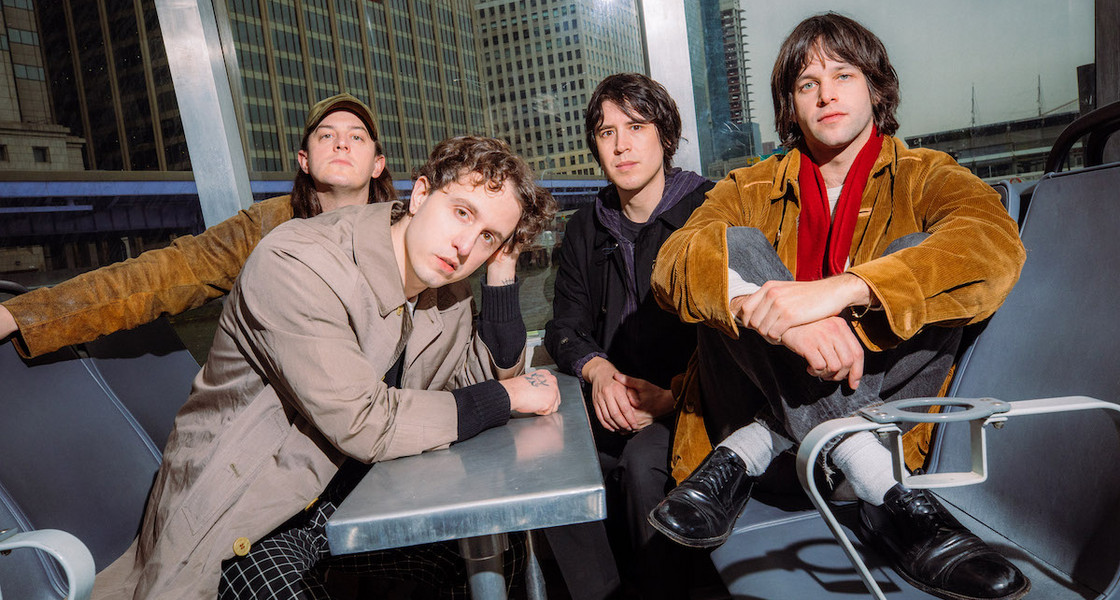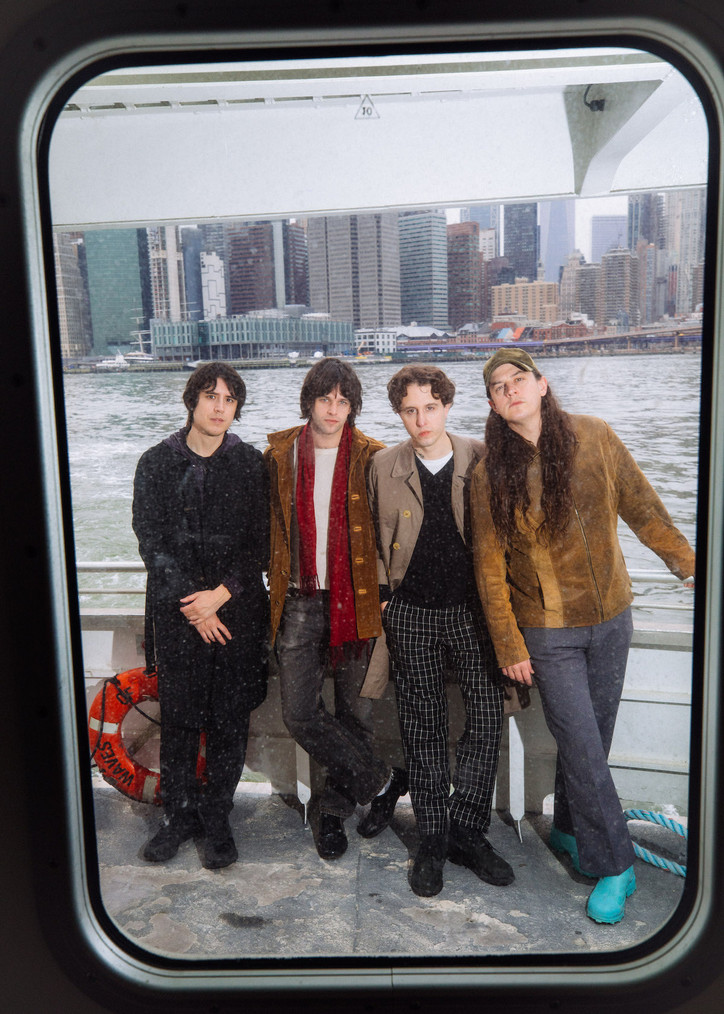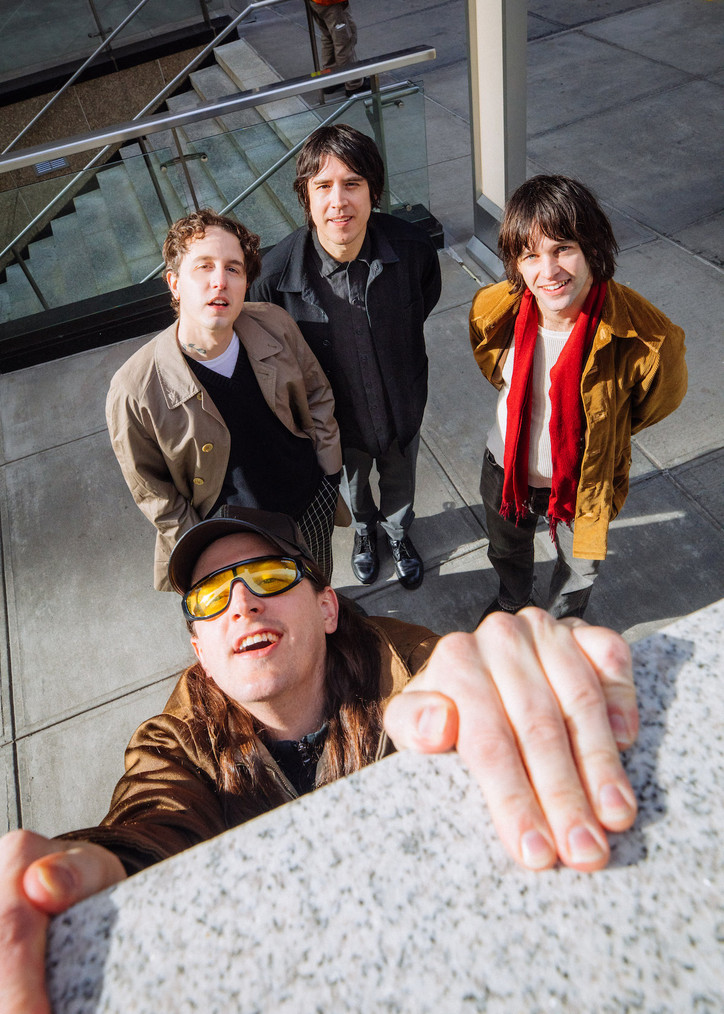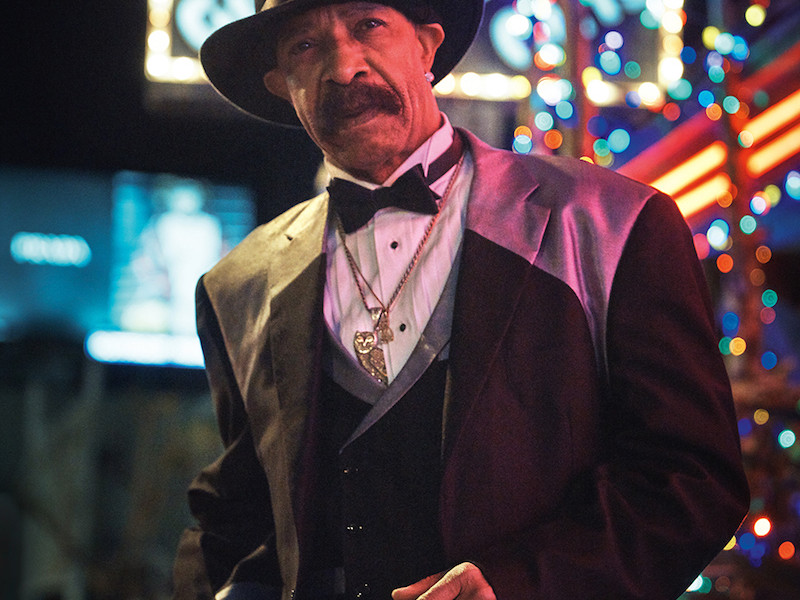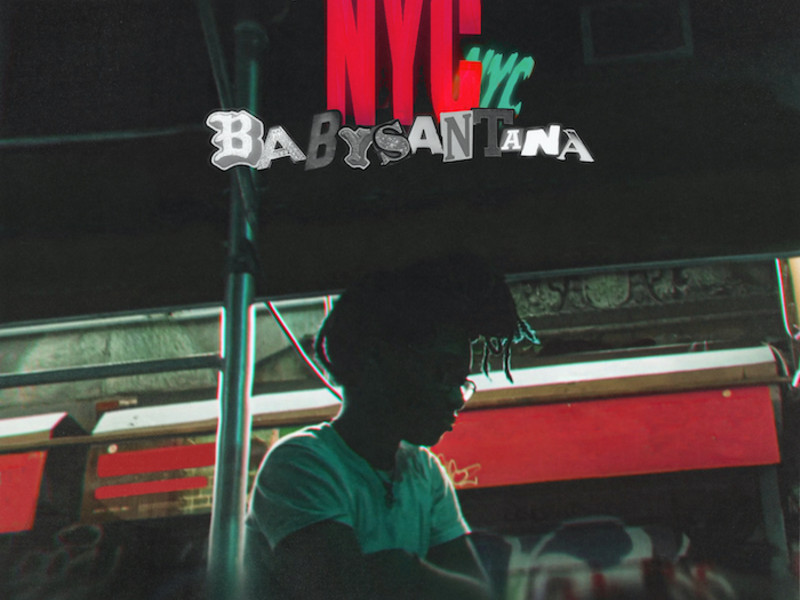And in the same way that you get that release through the music, there are people who can listen to it who are thinking, 'This is exactly what I needed to hear.' That relatability is something that I really enjoy about your music, especially the lyrics. You bring this really infectious pop energy. But I know you also used to perform in an indie rock band and you have interests in drum and bass and beat making. If I had to guess what your music library looks like, I would guess it's probably pretty diverse. Who or what inspires your sound?
Nowadays, the music that inspires me is just constantly changing. But growing up, my dad listened to a lot of current music at the time, which meant that even though I was like 10 when all of these albums came out, I still got to hear them. So Arctic Monkeys — their first albums, Amy Winehouse, M.I.A., Lilly Allen, Scissor Sisters. All of these artists, my dad had the CDs and he was playing them in the car. He was just a middle-aged dad, but he was so into everything that was coming out of the UK music scene at that time. That was an incredible time for a lot of artists. And many of the artists that came out at that time were very opinionated. Their lyrics were really real and cheeky. And I think, lyrically, I was very inspired by those artists. Then musically, it's always changing and I think, for me, that's really exciting because I know I make music, but first and foremost I see myself as a storyteller. So it's exciting for me that I don't feel like I need to box myself in. I'm just constantly experimenting and every time I'm working on a different project, I'm listening to different things. But I'm definitely trying to make pop that just sounds completely different from any kind of pop you've heard before. And that's a lifelong quest.
The cool thing about your music is that there's a throughline with the lyrics, but the sound is multifaceted. I also want to touch on your latest EP — tell me the story behind your favorite track on the EP and how it came to be.
I think my favorite track always changes from the EP. I'd say probably "I Really Fucked It Up" or "In a Child" are my favorites. But then also "Imposter Syndrome." I mean I love all of them. But "I Really Fucked It Up" was the first song that I wrote from this EP that felt like I could build a project around it. It was also related to why I ended up choosing to call the EP why am i like this?? because that song is all about watching yourself cause destruction to people you love and within your life and just feeling like, 'I don't even know how to change this. I don't know why I do these things.' So the whole EP is about taking a real hard look at myself in the mirror and being like, 'What are the patterns and habits that I need to sort out?' And not in a negative way necessarily — in a healing, self-love way.
What did you feel like you learned about yourself in that process? It seems like it was a very introspective process.
I think the biggest realization for me was that I am a work in progress and I don't have to have everything figured out right now. I constantly felt this pressure that I needed to have everything figured out and that everyone else knew what they were doing. I felt like I didn't get the guidebook to life like everyone else did. So writing these songs definitely helped me get more comfortable with the idea that I don't know what I'm doing and I don't know who I am and that question, 'Why am I like this?' Well, I probably will never fully understand the answer to that. And then also it's about how I am learning to accept that and love that. It's about owning that you are chaotic but in a beautiful way.
I mean I think we all are, and I think what you said goes for everyone. Your style reflects the vivid, energetic qualities of your music, and it's hard to miss your vibrant pink hair when you’re performing on stage. If you had to describe your personal style in three words, what would they be? What informs your style?
Three words to describe my style would probably be: energetic, colorful, and experimental. Growing up, I really loved the Spice Girls. When I started getting into fashion, I was really into the 90s style, but then I was also really inspired by Japanese fashion. I remember finding so many amazing Japanese street-style magazines and being so inspired by how colorful and experimental that style is. Which are two of the words I just used to describe myself! And then I think I definitely would say that my queerness and my involvement in the community and meeting more LGBTQ+ artists, that has also influenced my style because LGBTQ+ people just dominate the fashion industry. They're really influencing big fashion trends. But I think also going to events and seeing other queer women and what they were wearing definitely inspired my fashion as well.
Empowering women with your platform is something very near and dear to your heart. In what ways does your music challenge societal stereotypes regarding women and allow us to rewrite our own narrative?
I've always felt that music and my songs were kind of a weapon to challenge the stereotypes and ideas that come along with being a woman. I call myself Girli, but a lot of my early songs were rebellious and had some bite to them — some of my songs still do — but especially the first music that I released was very loud and in your face and definitely not what you would expect from an artist called Girli. It was just the opposite of what you’d expect. It was really stompy and angry and in your face. My music tells the stories of things that I've experienced and I have songs about misogyny I've experienced, songs about catcalling — my song “Not That Girl,” it's about being catcalled. My song “Hot Mess” is about experiencing sexism within the music industry. I think it's always felt very powerful to release that music and have people find those songs and feel empowered by them. And also playing them live feels so amazing because everyone's screaming it together and music can be protest.
I really like the idea of music as a weapon. I think that's extremely powerful. I know you played some headline shows in March and then you just announced more tour dates across the U.S. What is your favorite part about touring and what are you looking forward to for the new dates this time around?
The U.S. tour that I just did in March was amazing because I've never played shows in the U.S. before. I have interactions every day with fans online, but actually being able to physically perform and talk to people is so important. I always go to the merch stand and speak to fans for sometimes up to two hours after the show. Sometimes the speaking and hanging out afterward is longer than the actual show because I just love meeting them and hearing their stories. I just think that's so amazing and it's human. Social media can make a lot of people, especially myself, feel so disillusioned and isolated from what actually matters. In what I do, real lives are being impacted in a positive way. And that's definitely my favorite part. When I'm in there and I'm singing to a whole room of people, it theoretically could be any kind of time zone — even a hundred years ago. Obviously, it's not because a hundred years ago I probably would be sent to prison for singing about being gay and having armpit hair. But it's still this amazing feeling of phones, the internet, and social media becoming irrelevant and I love that.
